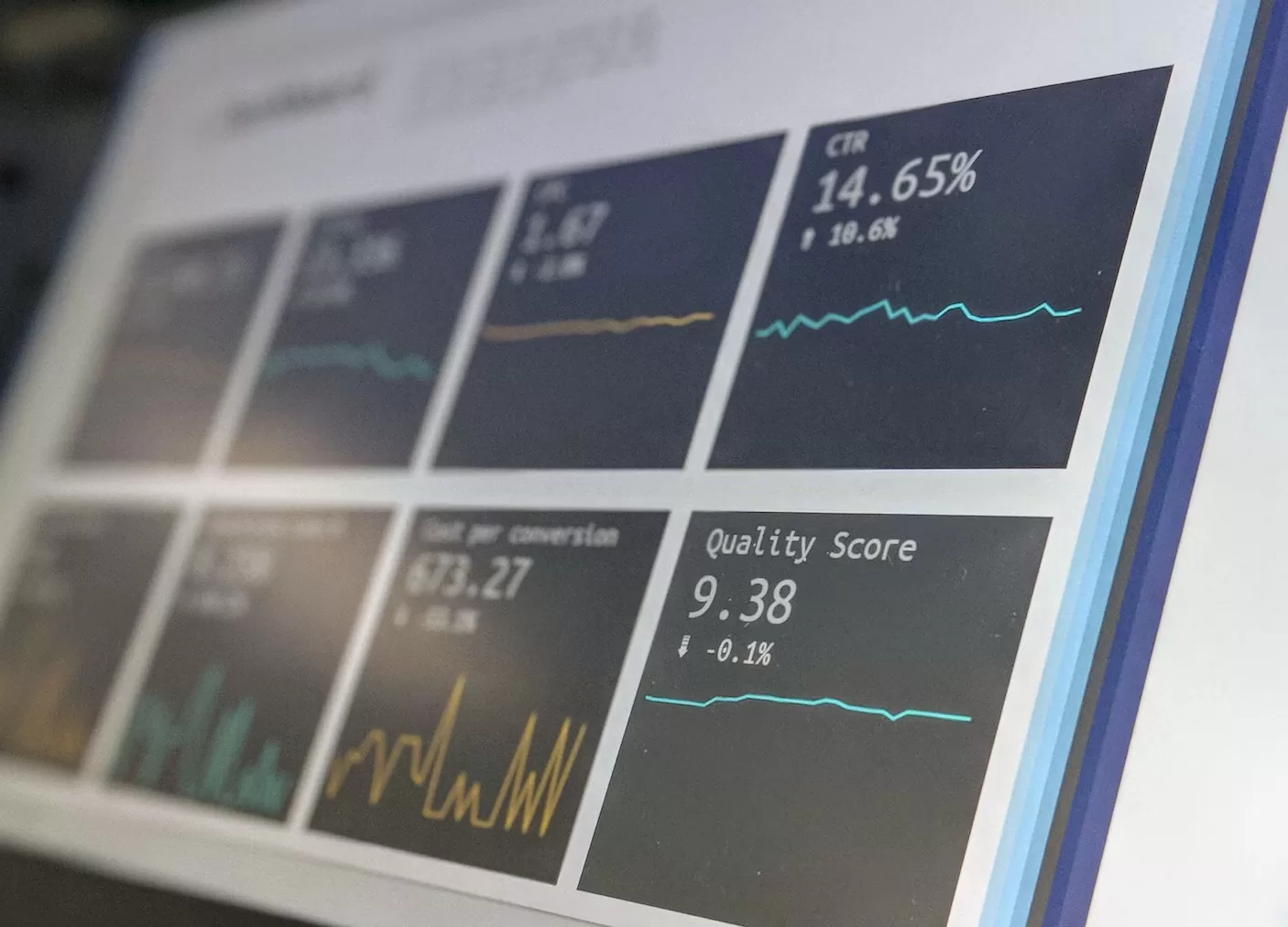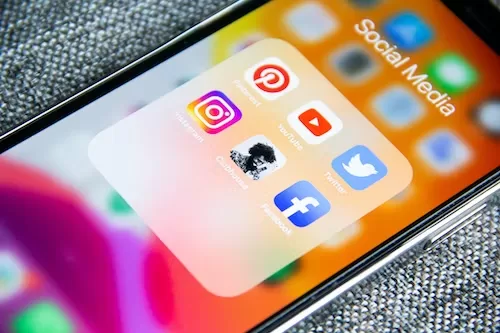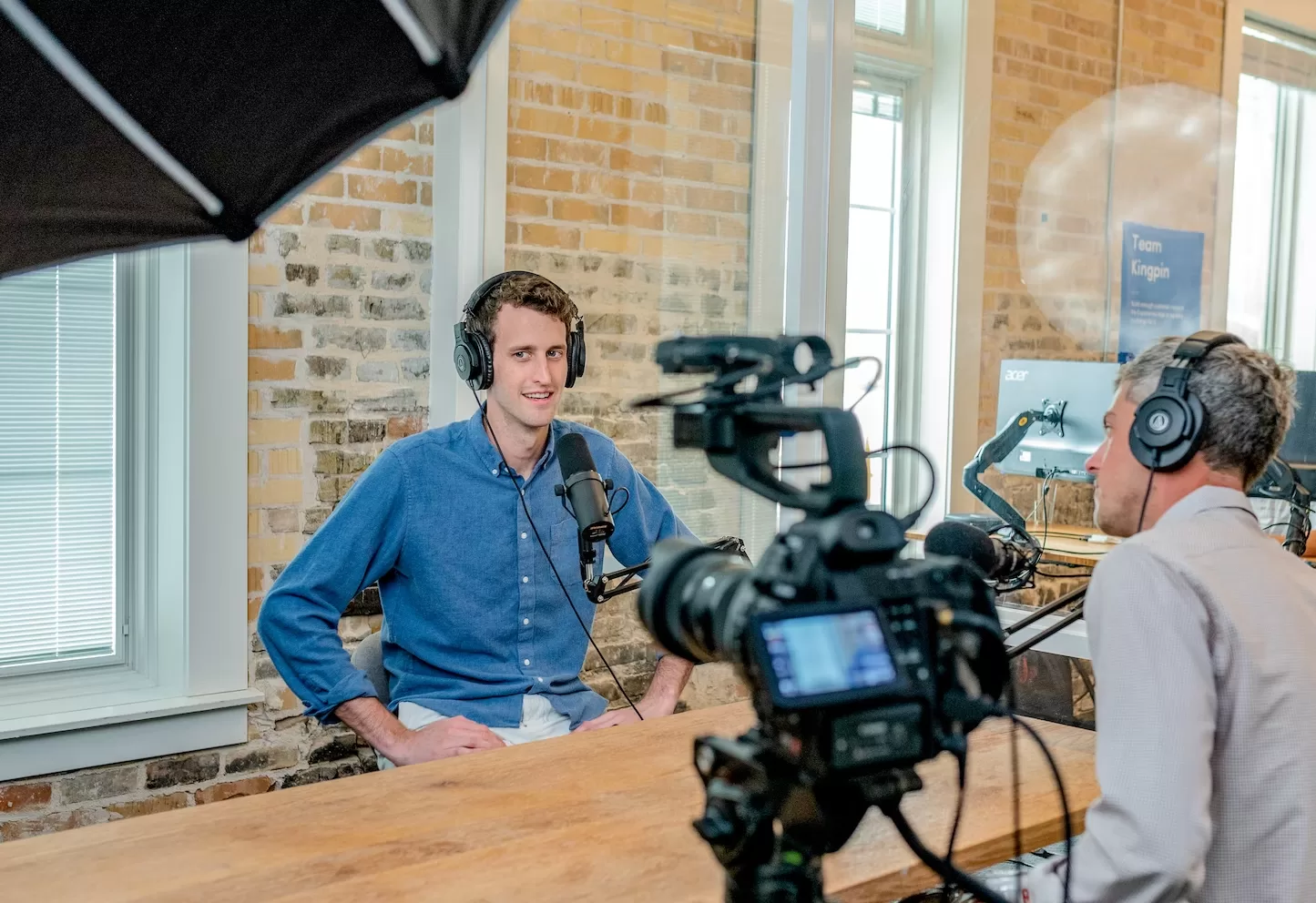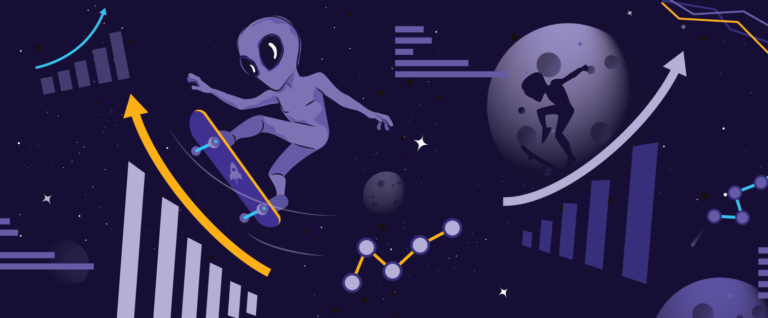With no small irony, machines are breathing new life into the marketing community. Thanks to recent technological advances, artificial intelligence and marketing go hand-in-hand, providing marketing professionals with a brand-new set of tools to augment and streamline their strategies.
Though artificial intelligence (AI) will never eliminate the need for human input, marketers can use AI-powered tools to save time and optimize their output for better results.
What is AI marketing, exactly, and what are its advantages? This post will introduce you to some of today’s best practices and provide insight into how technology is reshaping the industry.
What Is AI Marketing?

AI marketing refers broadly to marketing tactics that rely on artificial intelligence and/or machine learning in the planning, creation, execution, or analysis of marketing content or a marketing plan.
By definition, artificial intelligence is designed to mimic human thought processes and even communication patterns. This makes it an ideal tool for creating and optimizing marketing materials.
Machine learning, meanwhile, is designed to analyze data and adapt based on identified trends. Marketing teams that employ these two technologies in tandem can deliver personalized content that engages their audiences more effectively.
Just how prevalent is AI marketing? Experts are now predicting that by 2024, the market for using AI in marketing will surpass $35 billion — roughly triple that of 2021. This shows how marketing professionals are pivoting toward these digital solutions to power their campaigns.
The Benefits of AI Marketing
The push to unite artificial intelligence and marketing is about more than just novelty. Advanced tools are making it easier for marketing professionals to create content and manage campaigns, and companies are seeing results in the form of improved customer engagement.
Here are just a few of the benefits of using artificial intelligence in your marketing efforts.
Save Time
AI-powered software can accomplish many tasks in a fraction of the time they would take a human. For instance, AI tools can analyze marketing data and provide insights that would otherwise take hours of research.
Similarly, artificial intelligence can be used to generate blog outlines, content ideas, and even the content itself, all of which frees marketers to focus on other important tasks.
Spark New Ideas
Do you experience the occasional bout of writer’s block? AI doesn’t. That’s one of the major reasons companies are bringing together artificial intelligence and marketing.
Chatbots like ChatGPT can produce a functionally limitless number of blog titles, slogans, and other ideas that can get your creative juices flowing and spark ideas you might not have considered on your own.
Optimize Your Content
AI and machine learning can analyze and learn from your customers’ behavior, making it possible to deliver personalized content that uniquely speaks to your core demographic. What’s more, AI tools can help you come up with new keywords, allowing you to optimize your written content so you rank higher in popular search engines.
Refine Your Customer Personas
Many businesses rely on customer “personas,” brief descriptions of the typical customer or demographic you’re trying to reach. But over time, these personas can start to feel stale or cease to reflect the real-world behavior of your target market.
Artificial intelligence can analyze your customer data to identify spending patterns and other behavioral trends. This, in turn, can help you create more realistic personas, as well as strategies for connecting with them.
Scale Your Business
AI-powered marketing tools can save you hundreds of hours. With that extra time, you’ll be able to take on more projects and grow your business without increasing your employee headcount.
The efficiency you gain from artificial intelligence and machine learning can provide all the tools you need to scale your business while keeping your costs to a minimum.
Manage Your Brand Reputation
Your online reputation matters. According to post-pandemic statistics, roughly nine out of 10 (89%) of consumers read online reviews before deciding to complete a purchase.
This doesn’t just apply to the product itself but also to the company selling it. AI can keep an ear to the ground, so to speak, and highlight negative reviews and sentiments so you can address small concerns before they become major issues.
Ways to Use AI in Marketing
What is AI marketing actually used for? As of 2023, 80% of marketing professionals had integrated some form of artificial intelligence into their marketing activities. Most cite technology’s ability to deliver personalized content to diverse customer segments (see above). But AI-powered tools are capable of delivering surprising results.
Here are some ways to combine artificial intelligence and marketing activities in your business.
Conduct Market Research

Chatbots like OpenAI’s ChatGPT can be great “conversation partners” in the preliminary stages of campaign development. You can submit questions to these bots and they’ll feed you up-to-date market research or analyses of customer behavior you can use when designing your marketing content.
Your market research also extends to sentiment analysis. AI tools can gather data from the web, social media posts, and other sources to shed light on your audience’s beliefs, feelings, and desires, better equipping you to speak their language.
Keyword Research
Search engine optimization (SEO) refers to the process of optimizing your content so your website ranks higher on search engine results pages. This is commonly done through the use of keywords, which involves researching common search terms customers are likely to use.
An AI chatbot can help you perform keyword research, suggesting combinations you may not have previously considered. By integrating these keyword phrases into your content, you stand to increase your online visibility.
Customer Service Chatbots
Chatbots aren’t just virtual assistants for marketing teams. Some companies integrate AI-powered chatbots directly into their websites. This allows customers to ask questions or resolve complaints in real-time rather than wait for a human representative to assist them.
According to data from MIT, 90% of companies that integrate these chat features on their websites see “large improvements” in the speed with which customer complaints are resolved.
Other businesses can use chatbots to provide simple, straightforward education to customers in real-time. These tools can even generate new leads by harvesting customer data.
Brainstorming Ideas
Content marketers can use artificial intelligence to brainstorm new ideas. For instance, you can ask programs like ChatGPT to produce 10 ideas for a blog post about web design or suggest possible social media posts.
These tools can produce a staggering number of suggestions in seconds, which can help you develop new ideas, create blog outlines, or introduce fresh language to your existing content.
Create Content

If need be, AI-powered software can create entire blog posts and web copy based on minimal prompting. Naturally, this is a huge time-saver, and the content produced by these tools can be further optimized for better search engine rankings.
Just be aware that this is one of the more controversial applications, at least at the moment. AI-powered programs have been shown to create fake citations rather than pulling from real data, and search engines like Google caution that relying too heavily on AI can result in posts being flagged as spam.
Create Compelling Video Scripts

The fusion of artificial intelligence and marketing content isn’t limited to the printed word. Users can also leverage AI tools to create scripts for promotional and instructional videos and podcasts.
Simply narrate your current thoughts to the AI program and it can organize your thoughts and refine it into a finished script.
Custom Narration
You don’t even have to use your own voice when creating marketing audio and video. AI software can replicate a human voice to provide custom narration based on the script you input.
You can even infuse the narration with emotional inflection, customizable accents, and more, all of which combine to produce lifelike speech without the cost of hiring a professional voice actor.
The Future of Artificial Intelligence and Marketing
What is AI marketing going to look like in five years? Given how quickly it’s been adopted by marketing professionals, it’s safe to predict that AI will become the norm. Some estimates suggest that AI marketing will reach nearly $2 trillion by 2030, indicating widespread adoption by industry professionals.
For now, AI tools are helping both freelancers and marketing teams hone their craft and deliver superior results. By making AI a part of your toolkit, you can streamline your workflow and make yourself a more valuable resource for your employer and clients.

